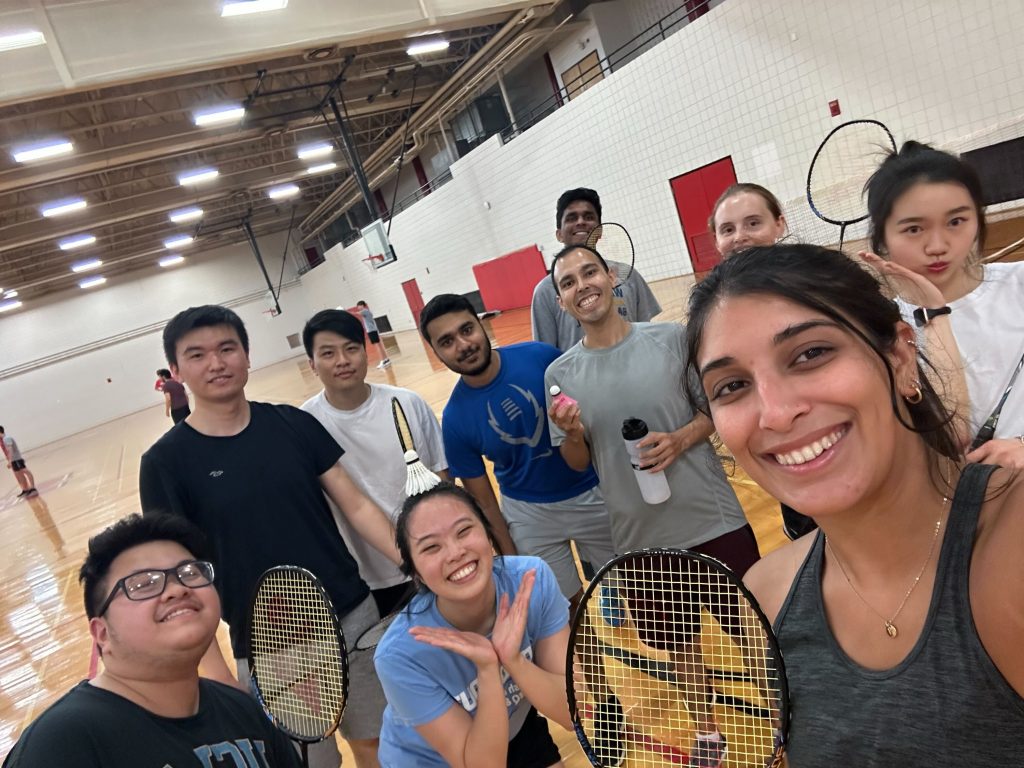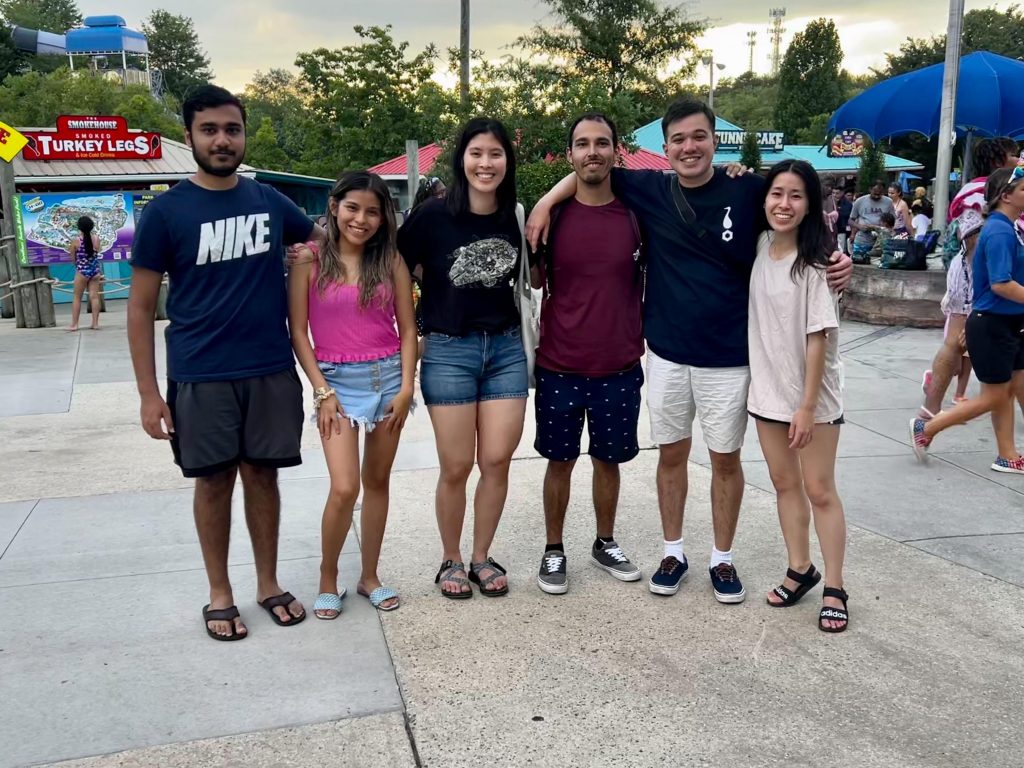Incoming students have likely heard through alums, family, friends, faculty, and informational sessions that the Master of Science in Analytics (MSA) curriculum is known to be challenging and rigorous. Before joining the program, I felt very excited but also anxious. However, implementing the three tips below improved my self-confidence and helped me adjust to the academic course load during the summer semester.
1—Be engaged
The MSA program offers statistics primer sessions before the summer semester starts. Regardless of background, I highly recommend all incoming students attend these sessions because they allowed me to see the classroom environment and build rapport with my classmates and professors before starting the program. To ensure I was thoroughly learning the material, I would attempt the assigned practice problems and assessments in Moodle and contact the professors if I needed assistance.
At the start of the summer semester, sitting in the front of the classroom aided me in being productive by eliminating distractions, focusing on the lectures and presentations, and answering questions. Getting acquainted with professors and peers helped me absorb the information being taught faster and form professional and social connections that helped me grow intellectually.
Knowing how to work well in a team setting is crucial to success in the MSA program. During the summer semester, I was introduced to two group projects, TIPS and summer practicum, which allowed me to work hands-on with peers and taught me some valuable advice for effective collaboration on future tasks. Through these experiences, I learned that it is important to respect each other’s differences, maintain honest and transparent communication, be adaptable, and set a clear agenda for all team members to follow.
2—Enhance knowledge of statistics and coding
As the summer semester starts with an intensive focus on hypothesis testing, ANOVA, regression analysis, model building, and categorical data analysis, attending the primer sessions made it easier for me to understand these topics without feeling overwhelmed. After lectures, I worked on the practice problems shown in the breakdown sessions and labs and asked my classmates and professors for help if needed. Reviewing the slide decks and redoing the practice problems multiple times until I could do them independently helped me score well on the analytics material and computing assessments.
Before starting the program, I completed coursework in R and Python in Data Camp. I did not just focus on completing these courses; instead, I took some extra time to ensure I understood the concepts. Understanding the concepts allowed me to better handle the problems during the in-class programming labs and coding assignments.
The MSA program encourages students to explore and obtain technical certifications that complement their classroom knowledge. During the summer and fall semesters, most students aim to complete the Python Certified Entry-Level Programmer (PCEP) certification. Afterward, some complete Tableau and AWS certifications. Having multiple certificates on the resume can help during job interviews.
3—Take time to destress
I enjoyed joining various Slack channels that matched my interests and coordinating activities with classmates outside of classes. When I was not busy with school, I went on a group hike in Umstead Park in Raleigh, played a game of badminton at the Carmichael gym, and went on a road trip to Wet N Wild in Greensboro. These activities made me relax and take time off from studying, so I did not feel mentally exhausted.


Between classes and during breaks, I liked to step outside to grab a cup of coffee or tea to help me recharge for the rest of the day. My recommended spots on campus would be Starbucks, Common Grounds Café, or Port City Java, where my typical order was a hot black coffee, hot chocolate, or hot green tea.
After a long day at the Institute, I would briefly chat with my parents, letting them know how my day went and how my classes and assignments were going. Receiving support from loved ones made me feel confident and motivated to put my best effort forward each day.
Columnist: Aditya Kandukuri
